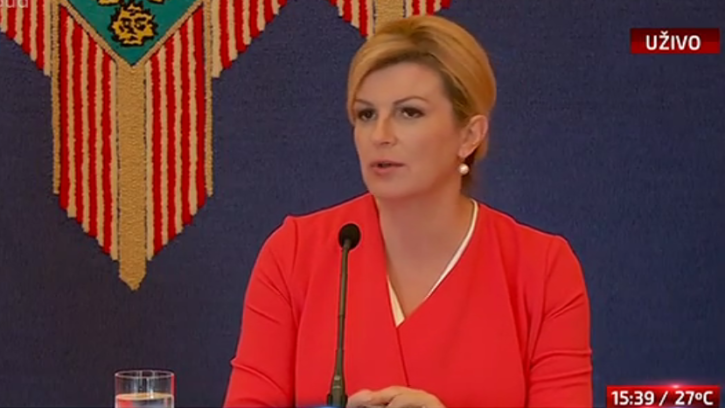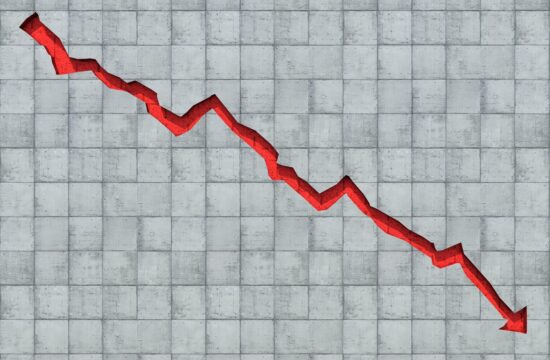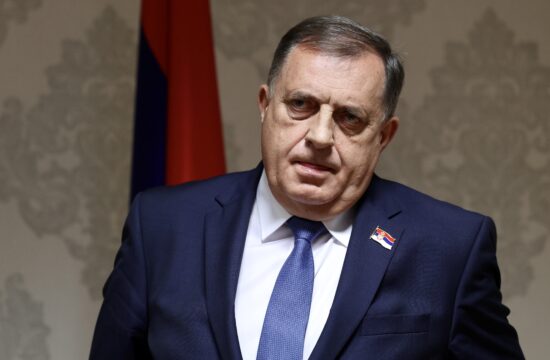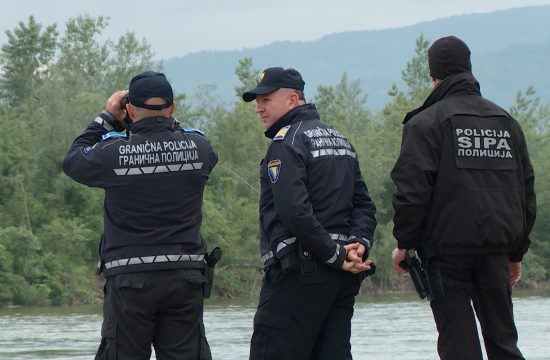
The cabinet of the Croatian President, Kolinda Grabar-Kitarovic, sent a statement on Wednesday to N1 television denying that the president had said claims attributed to her in a recent interview with an Austrian paper referring to Croatia's Muslims as "living in fear".
In a reply to N1 television, her office's statement said that she has not “at any point” stated the specific claims attributed to her.
In an interview with Austria's Kleine Zeitung paper, excerpts of which appeared in the Croatian media on Wednesday, Grabar-Kitarovic was quoted by saying that Croatian Muslims “live in fear”, saying she based her claim on a recent talk with “Croatia's mufti.”
According to Kleine Zeitung, she went on to say that the unnamed mufti was “completely exhausted from attempting to include migrants in Croatia's Muslim community, which is integrated into Croatian society”.
“The man had ‘frustration’ written on his face. Our Croatian Muslims live in big fear. They fear for their inclusion in society, worried that they will become segregated and that this will be caused by individuals coming to us under false pretenses, but actually to promote radical ideas,” Grabar-Kitarovic was quoted as saying.
‘Unpleasant surprise’
Parts of the interview, in which she mostly talked about the problem of migrants coming to Europe, raised eyebrows in Croatia, with the leader of the Islamic Community in Croatia, Aziz Hasanovic, saying he was unpleasantly surprised by her statements as published by Kleine Zeitung.
“Such statements, if true, aren't conducive to the development of trust and they also narrow room for developing cooperation in the future, regardless of the fact that it will be at everyone's expense,” Hasanovic said, and went on to talk about Islamic Community's project to helping those in need, including incoming migrants.
“This summer alone we managed to secure 3,000 packages (of essentials) for migrants and everything necessary for 56 pupils to go to school. Fifty families care for 50 of the most vulnerable persons who need constant help. We organise every religious activity solely in our mosques, so that they don't separate themselves and feel neglected, or become ghettoised,” Hasanovic said.
“Those processes are supported and realised by members of our community, to whom I'm especially grateful, as I am to all the government's services and ministries,” he said, adding that Muslims in Croatia feared no one “but God.” Migrants who may have come here for “some other motives” other than existential, have not been recorded in Croatia, Hasanovic said.
Kleine Zeitung misquote
Later on Wednesday, the Grabar-Kitarovic's office's statement said that she had been misquoted by Kleine Zeitung, saying that a key part of the sentence was dropped out in editing, in which she referred to alleged appeals for help sent to her from the town of Velika Kladusa in northwest Bosnia, which “expressed concern for the stability of the local community over there.”
The Bosnian town of Velika Kladusa, located only a few kilometres away from the border with Croatia, has become a popular stop for migrants travelling the so-called Balkans route in recent months, as the Slovenian border and the gateway to the Schengen passport-free area that migrants hope to reach is only 50 kilometres further west across Croatian territory.
Last week, Grabar-Kitarovic had paid a midnight visit to the local Croatian border police station which patrols that area and inspected a section of the border herself, using a thermal imaging camera. Although she did not spot any migrants, she told reporters that her visit was prompted by numerous complaints by Croatians living in the border area who are concerned about the increased number of illegal migrants in the area, and who fear for their own safety.
She also said she had received appeals for help from Velika Kladusa, asking her to forward their request to prevent establishing a large migrant centre in that town, to the European Commission. In August, Sarajevo government had announced plans to set up a temporary accomodation centre in town, opposing local authorities who were against the idea.
The EU had donated €6 million to Bosnia to help fight the increased influx of migrants, and European Commission's recent estimates said that there are currently 3,500-4,000 migrants in Bosnia, most of them located in areas near the Croatian border.
Follow N1 via mobile apps for Android | iPhone/iPad | Windows| and social media on Twitter | Facebook.




